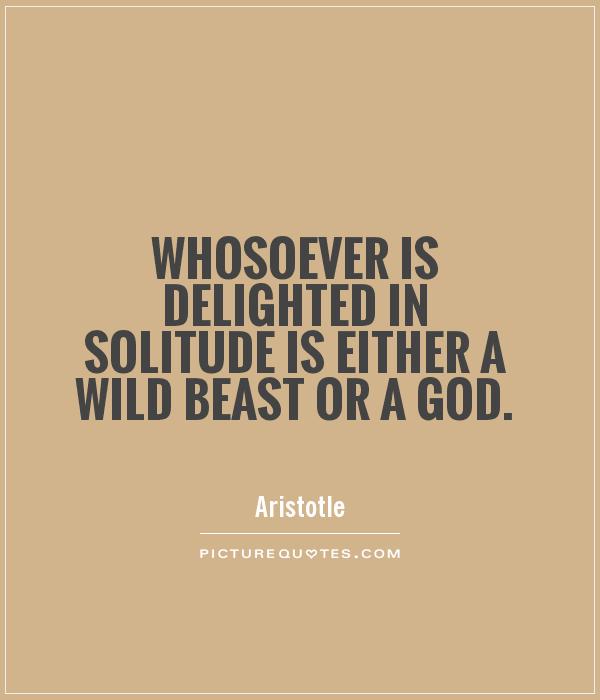Whosoever is delighted in solitude is either a wild beast or a god

Whosoever is delighted in solitude is either a wild beast or a god
Aristotle's words, "Whosoever is delighted in solitude is either a wild beast or a god," speak to the dual nature of human beings and the importance of balance in our lives. In this context, Aristotle is highlighting the extremes of human behavior when it comes to solitude and social interaction.On one hand, those who are delighted in solitude to the point of isolation can be seen as wild beasts. This suggests a lack of social skills, empathy, and connection with others. These individuals may be selfish, aggressive, and lacking in emotional intelligence. They may prioritize their own needs and desires above all else, disregarding the impact of their actions on others. In this sense, they are like wild beasts, driven by instinct and self-preservation rather than reason and morality.
On the other hand, those who are delighted in solitude to the point of transcendence can be seen as gods. This suggests a deep sense of inner peace, wisdom, and self-awareness. These individuals may have a strong sense of purpose, creativity, and spirituality. They may be able to connect with the divine within themselves and others, seeing the interconnectedness of all things. In this sense, they are like gods, embodying the highest ideals of humanity and transcending the limitations of the physical world.
Aristotle's words remind us of the importance of balance in our lives. While solitude can be a source of reflection, creativity, and personal growth, it can also lead to isolation, loneliness, and detachment from reality. Similarly, social interaction can be a source of connection, empathy, and community, but it can also lead to conformity, conflict, and superficiality. By finding a healthy balance between solitude and social interaction, we can cultivate the virtues of both the wild beast and the god within ourselves.












 Friendship Quotes
Friendship Quotes Love Quotes
Love Quotes Life Quotes
Life Quotes Funny Quotes
Funny Quotes Motivational Quotes
Motivational Quotes Inspirational Quotes
Inspirational Quotes